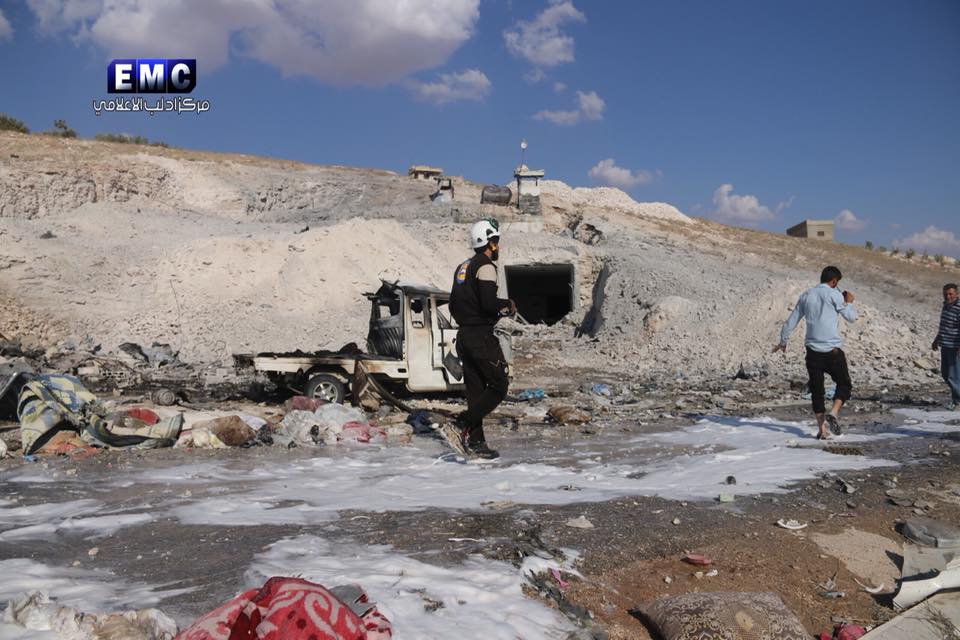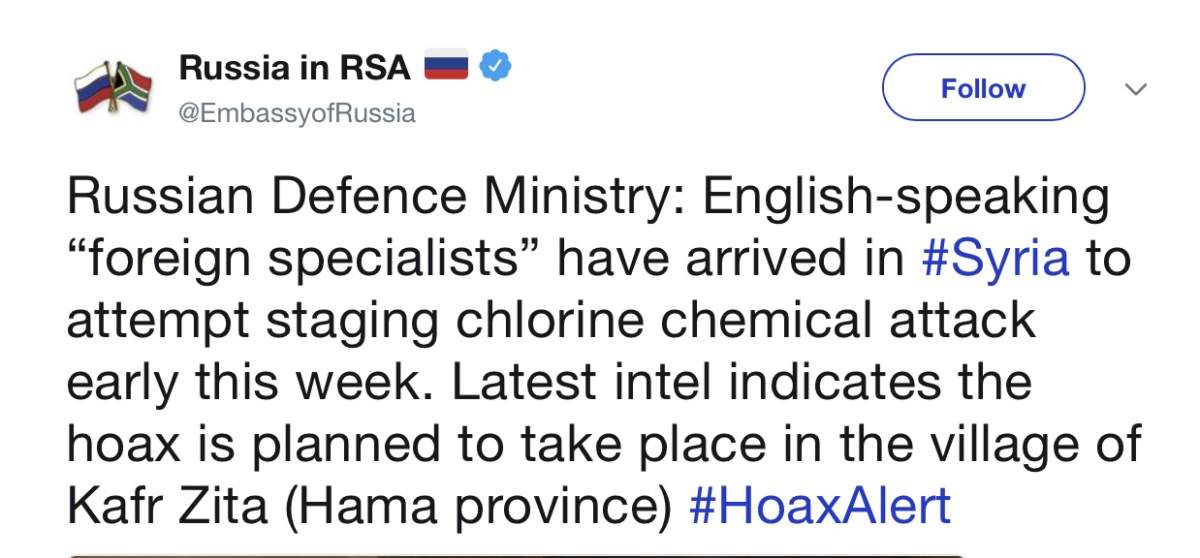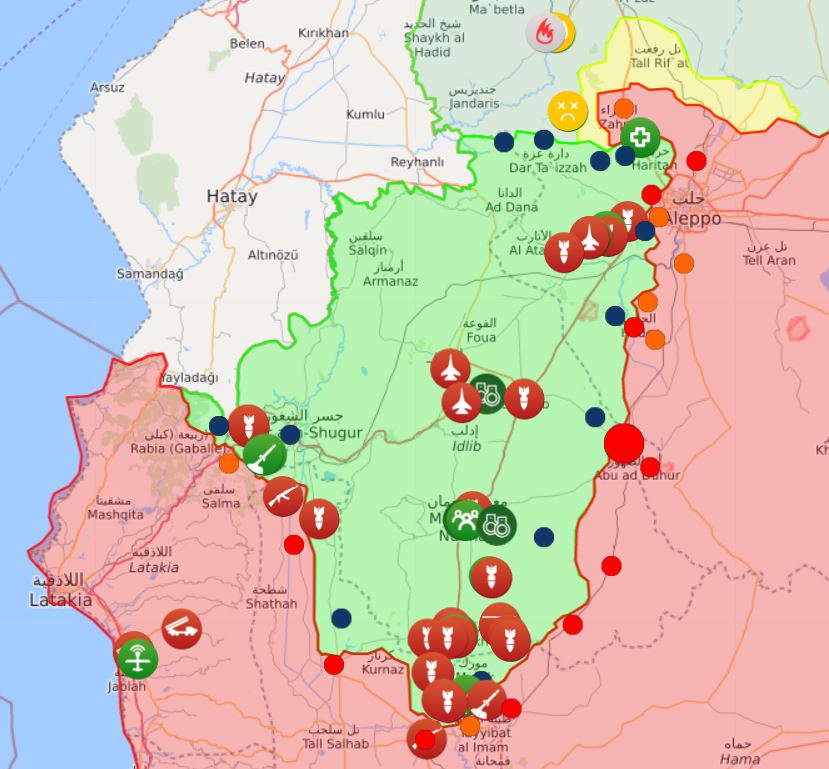Hayat Tahrir al-Sham Attempting to Consolidate Power Ahead of Idlib Offensive
The Syrian regime continues to indicate that an offensive on rebel-held Idlib in coming, publishing videos of ammunition and soldiers being moved to borders of the region and dropping leaflets calling for reconciliation. Opposition forces have also begun preparations: digging trenches, merging organizations and groups into their umbrella, and asking civilians to begin moving from possible areas of conflict.
August also saw a surge in Hayat Tahrir al-Sham (HTS, which has previously been associated with al-Qaeda) operations to arrest those allegedly attempting to reconcile with the regime, as well as alleged Islamic State and regime cells in Idlib. Operations have mostly been run by HTS on areas in the north and south of Idlib, with Jaish al-Iza arresting a regime cell in the town of Khan Sheikhoun.
HTS initially announced the arrest of more than 30 people accused of attempting to reconcile with the regime in southern Idlib on August 8th. They also announced the capture of Islamic State cells in the same area. That week, it was also reported that 115 people who were involved in reconciliation efforts were arrested by the National Liberation front and HTS, with the names of 200 people collected after “investigations with those who were arrested”.
HTS reported that it had captured Islamic State bomb makers involved in IED production and executed six members of an Islamic State Cell. While HTS has mainly focused on arresting those accused of trying to reconcile with the regime and IS cells, it has also arrested leadership of other groups. On August 12th, the leader of Firqat al-Ghuraba, a Francophone Jihadist group, was arrested by HTS with a variety of different reasons reported during the time he was held. On August 18th he was reportedly released.
HTS was accused of arresting Ahmed Khaled Al-Qanatri at a checkpoint between Kafr Nabl and Hazirin. Al-Qanatri is one of the founders of a group named the Popular Revolutionary Resistance, a small group present in Eastern Idlib. HTS has also released prisoners like the leader of Jaish al-Nukhba on the August 15th, an FSA-aligned group, after nearly one year in prison. This was followed by a general amnesty by the group for low-level offenders in prison on occasion of Eid al-Adha, although it did not affect any arrests of group leaders or those involved with reconciliation efforts.
While little information has been posted or provided about whether or not these arrests really are connected to reconciliation efforts or otherwise, these kinds of arrests aren’t without precedent.
During the 2018 regime offensive on Daraa, rebels lost significant amounts of territory in a matter of weeks. This was due, at least in part, to a large number of groups surrendering to the regime in deals where they disarmed, or negotiating with local mediators to reconcile and join regime forces.
Idlib stands as the last major stronghold of Rebel power in Idlib. Groups like HTS appear to be committed to maintaining control, or at least maintaining their influence, on the remaining Syrian opposition. Clearing out people who are viewed as threats to the consolidation of power and influence by HTS, whether real or imagined, will increasingly become a priority leading up to the offensive.
Special thanks to Nick Waters, @syrianomark2 and @Gazelle45F for their assistance in collection of resources. Some images were first shared by the @jorgechav29 Twitter account.


